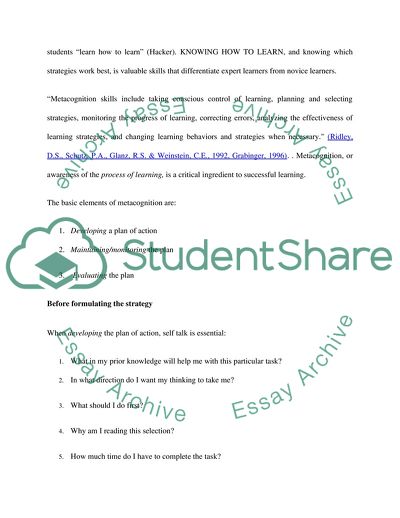Cite this document
(Metacognition in Human Activities Article Example | Topics and Well Written Essays - 1250 words, n.d.)
Metacognition in Human Activities Article Example | Topics and Well Written Essays - 1250 words. https://studentshare.org/education/1724999-metacognition
Metacognition in Human Activities Article Example | Topics and Well Written Essays - 1250 words. https://studentshare.org/education/1724999-metacognition
(Metacognition in Human Activities Article Example | Topics and Well Written Essays - 1250 Words)
Metacognition in Human Activities Article Example | Topics and Well Written Essays - 1250 Words. https://studentshare.org/education/1724999-metacognition.
Metacognition in Human Activities Article Example | Topics and Well Written Essays - 1250 Words. https://studentshare.org/education/1724999-metacognition.
“Metacognition in Human Activities Article Example | Topics and Well Written Essays - 1250 Words”. https://studentshare.org/education/1724999-metacognition.


